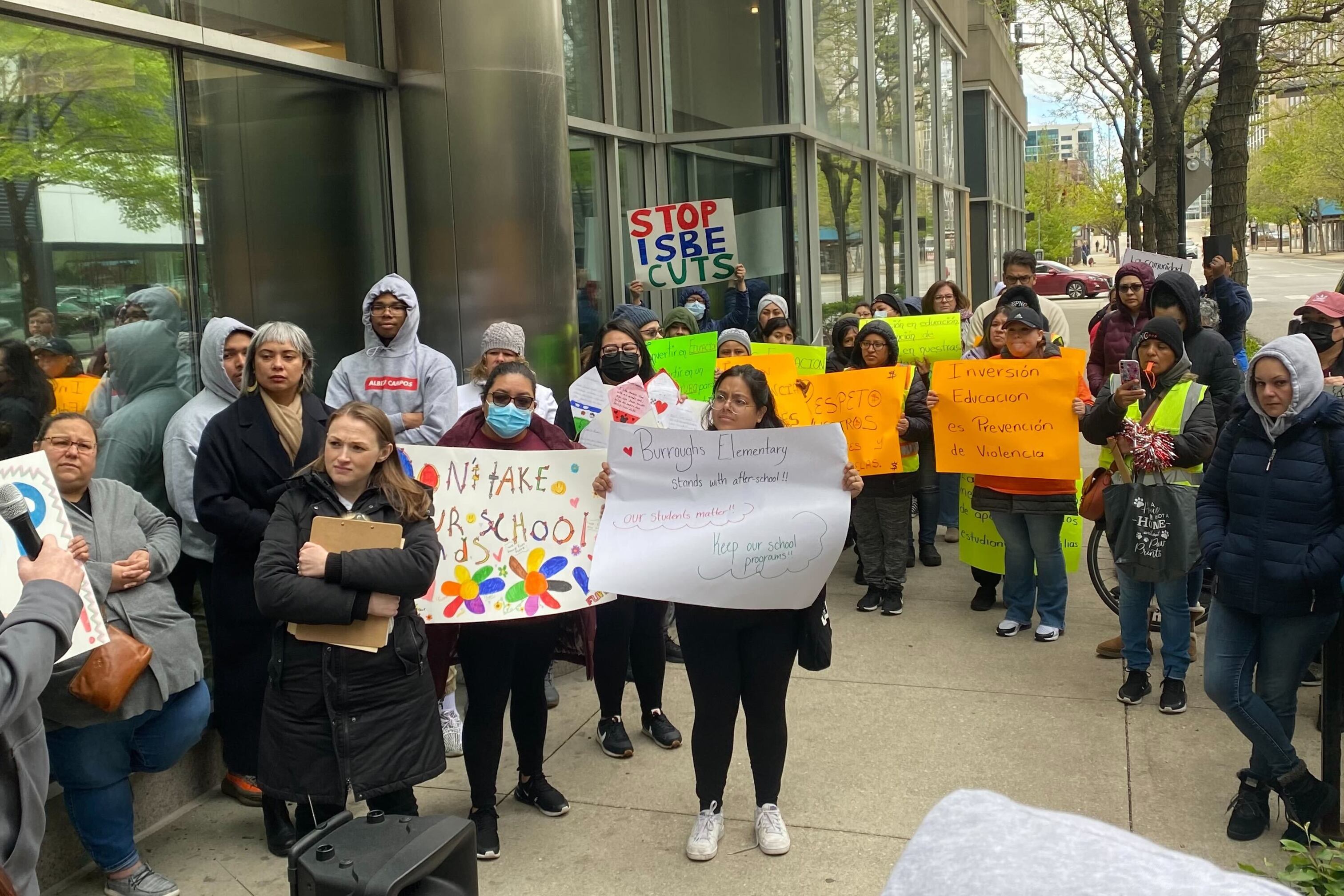After-school programs for 27,000 Illinois students may be in danger of running out of money after next year because of an accounting error made by the Illinois State Board of Education.
The error has caused a projected $12.4 million shortfall for 2024, according to a spokesperson with the state board. State Superintendent Tony Sanders says the state will use emergency COVID-19 funding to fill in the gap this year, but will not have new funding available in the future.
A coalition of community groups that provide after-school programming — who estimate the shortfall as much larger — are calling on Gov. J.B. Pritzker and Illinois lawmakers to use state dollars to fill the gap to help programs survive in the future.
If that gap is not closed, they say, programs that provide students with a safe space after school to participate in extracurricular activities, tutoring, and mental health services may not have enough funding after next year.
Afterschool for Children and Teens Now (ACT Now), a group of Illinois after-school advocates, says these programs serve mostly Black and Latino students who attend high-poverty, low-performing schools. About 66% of students in the programs qualify for free and reduced lunch.
Marie Snyder, a site coordinator at Dr. Pedro Albizu Campos High School — an alternative school in Humboldt Park — spoke about the importance of her school’s after-school programs for students during a press conference on Tuesday outside of the Pritzker’s office in Chicago’s West Loop neighborhood.
Snyder’s school offers 12 after-school programs and five summer programs where students are able to take culinary arts, tutoring, basketball, and gardening.
“Not only do our students get to build relationships with each other, but with us. We all know that our city and our young people are in the midst of a mental health crisis,” said Snyder. “Our time invested enables us to observe our students for signs of trauma and stress and through our relationships we are able to encourage them to connect with mental health practitioners.”
In the past two years alone, Snyder said she’s been able to help 50 students access mental health services based on needs they’ve expressed.
The programs at risk are funded through a federal grant called Nita M. Lowey’s 21st Century Community Learning Centers program. The state board says the error stems from the early days of the pandemic. In a normal year, grantees would have to give unspent money back to the state board at the end of the year so the state could fund next year’s programs. In 2020, the state allowed programs to carry over unspent funding.
Sanders wrote in a weekly message on Tuesday that the state board did not account for how the carryover funds would impact funding for 2024 until this year when it found a shortfall of $12.4 million for next year. State officials notified grantees of the error in April.
The 2019 grantees affected by the error are in 68 locations across the state, Sanders said in his weekly message, noting that 42 school districts have committed to using other funds to support after-school programming and another 13 are looking for alternative funding sources.
Chicago Public Schools, one of the grantees from 2019, said it will use other funds to continue growing after-school programs.
Susan Stanton, network lead for ACT Now, said at Tuesday’s press conference that after-school programs are vital to students and families. She called on the state legislature to put additional money toward after-school programs in the final state budget, which must be passed by the end of the session this month.
“There is no other option,” Stanton said. “We can’t let families and children pay the price for the mistake that was made by the government.”
Samantha Smylie is the state education reporter for Chalkbeat Chicago, covering school districts across the state, legislation, special education, and the state board of education. Contact Samantha at ssmylie@chalkbeat.org.







